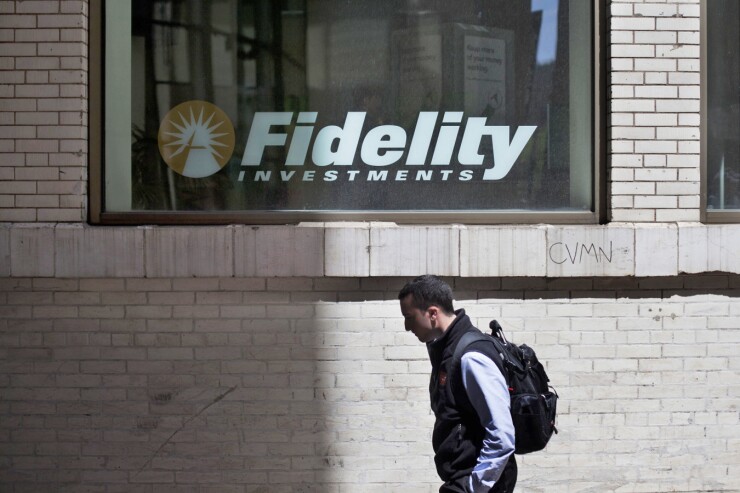Fidelity Investments is changing the way it charges wealth management customers for advice, based on the amount they have invested with the firm.
The new fees begin in July for the more than 800,000 customers of the wealth unit. The charges range from 50 basis points for accounts of more than $5 million to 1.5% for customers with less than $500,000. Currently, fees are tied more closely to the individual products, said Robert Beauregard, a Fidelity spokesman.

“This should make it easier for customers to understand what they are paying,” he said in an interview.
Firms like Morgan Stanley and Merrill Lynch have already moved to a unified system, where customers pay a single price based on their relationship with the firm, said Tom O’Shea, research director for managed accounts at Cerulli Associates in Boston.
-
IBDs and regional firms are making the biggest changes, but RIAs have room for growth as well.
April 2 -
The WiseBanyan platform currently has $153 million in assets under management and 32,000 clients.
April 10 -
Though largely replaced by the 1% of AUM model, performance-based fee structures are cropping up again — and that’s cause for concern.
April 2
The advice business has been under pressure. Under former President Barack Obama, the Department of Labor released a fiduciary rule which required brokers to put clients’ interests ahead of their own when handling retirement investments. While the future of that rule is unclear, it has been credited with pushing more advisors toward a fee-based system and for speeding the adoption of low-cost index products.
Small-caps carry risk, but they don’t have to be expensive too. Here are 20 with the best returns over the past five years and the lowest expense ratios.
At the same time, robo advisors are building portfolios for clients at a fraction of the cost typically charged by advisors. Fidelity has its own robo product, called Fidelity Go, which charges 35 basis points for accounts with as little as $5,000.
Boston-based Fidelity’s wealth management business has just over $300 billion in assets.






